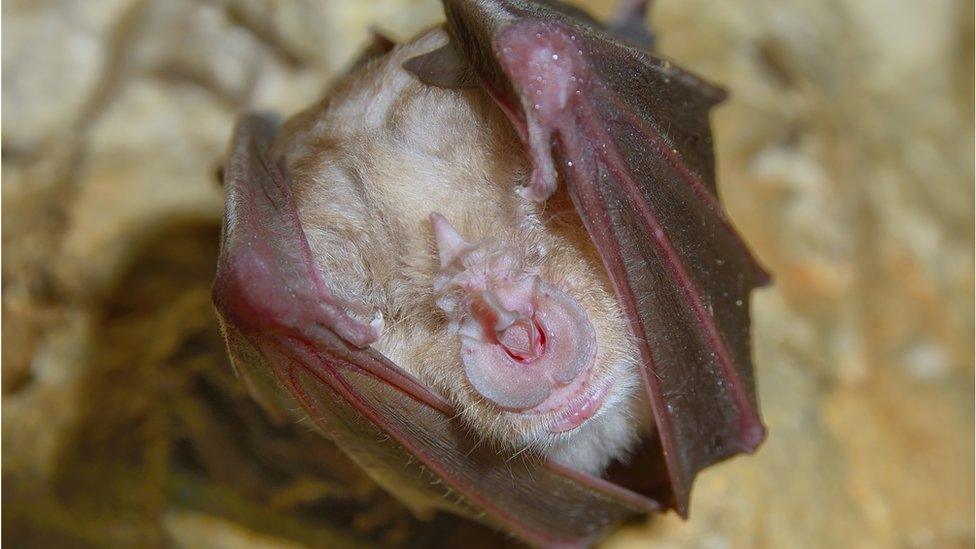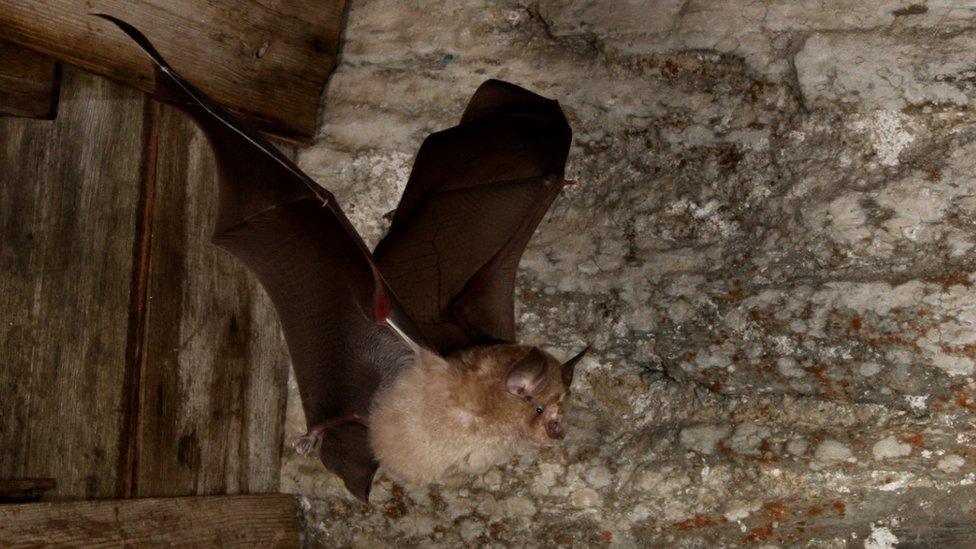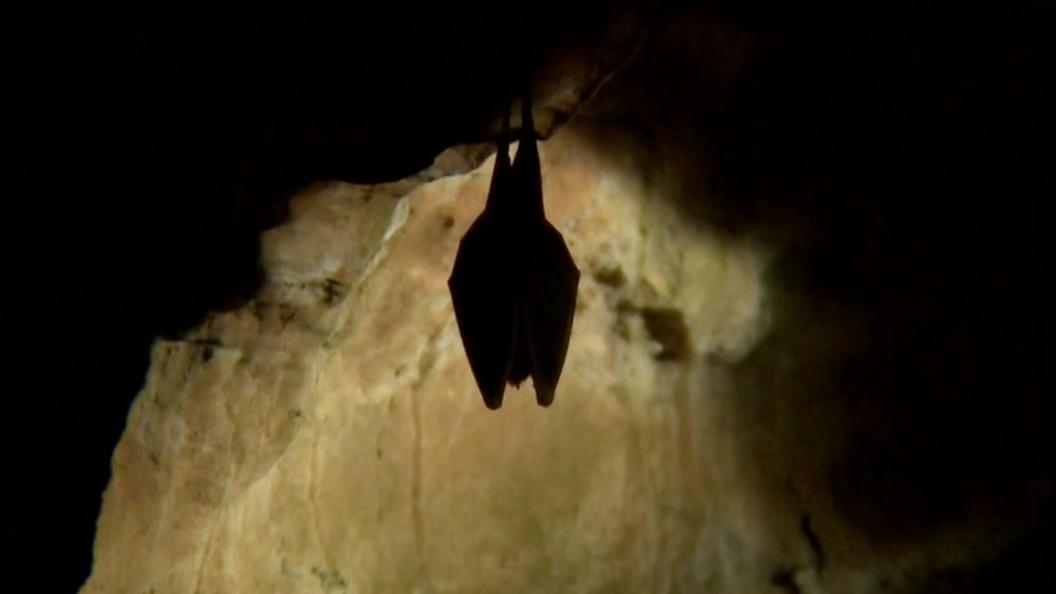Devon Greater Horseshoe Bat Project gets £707k of lottery funding
- Published

There are an estimated 6,500 greater horseshoe bats in the UK
A project to help one of Europe's most endangered bat species has been awarded £707,000 of National Lottery funding.
The Devon Greater Horseshoe Bat Project will restore habitats, protect 11 "priority roosts" and work with landowners.
Devon is the species stronghold, with a third of the UK's 6,500 bats found in the county, project organisers have said.
Funding has come from the Heritage Lottery Fund.
'Population crash'
The project is being led by the Devon Wildlife Trust in partnership with 18 organisations and the funding will allow the scheme to continue for the next five years.
Ed Parr Ferris, project manager, said: "The greater horseshoe bat is a species that has seen its European population crash in the last 100 years, and has disappeared from more than half its British range.
"Cattle-grazed pastures, wildflower-rich meadows, hedges, woodland edges, orchards and streams all play a key part in the bat's complex lives.
"The project will work with local farmers and communities to improve and conserve these features, which will be to the benefit not only of greater horseshoe bats but also Devon's wealth of other wildlife and our treasured landscapes."
The species is one of the UK's biggest bats with a wingspan of almost 16in (40cm).


Berry Head is one of 11 'priority roosts' where conservationists will focus their work
'Priority roosts'
The project will work with landowners and local people close to the most important sites for the bats
The areas include the Avon Valley, Berry Head, Branscombe, Bovey Tracey, the Tamar Valley, and Southleigh
The project's ultimate goal is to restore the landscapes the bats need to travel through and feed in around these priority roosts.


Greater horseshoe bats are one of the UK's biggest with a wingspan of almost 16in (40cm)
- Published29 July 2015
